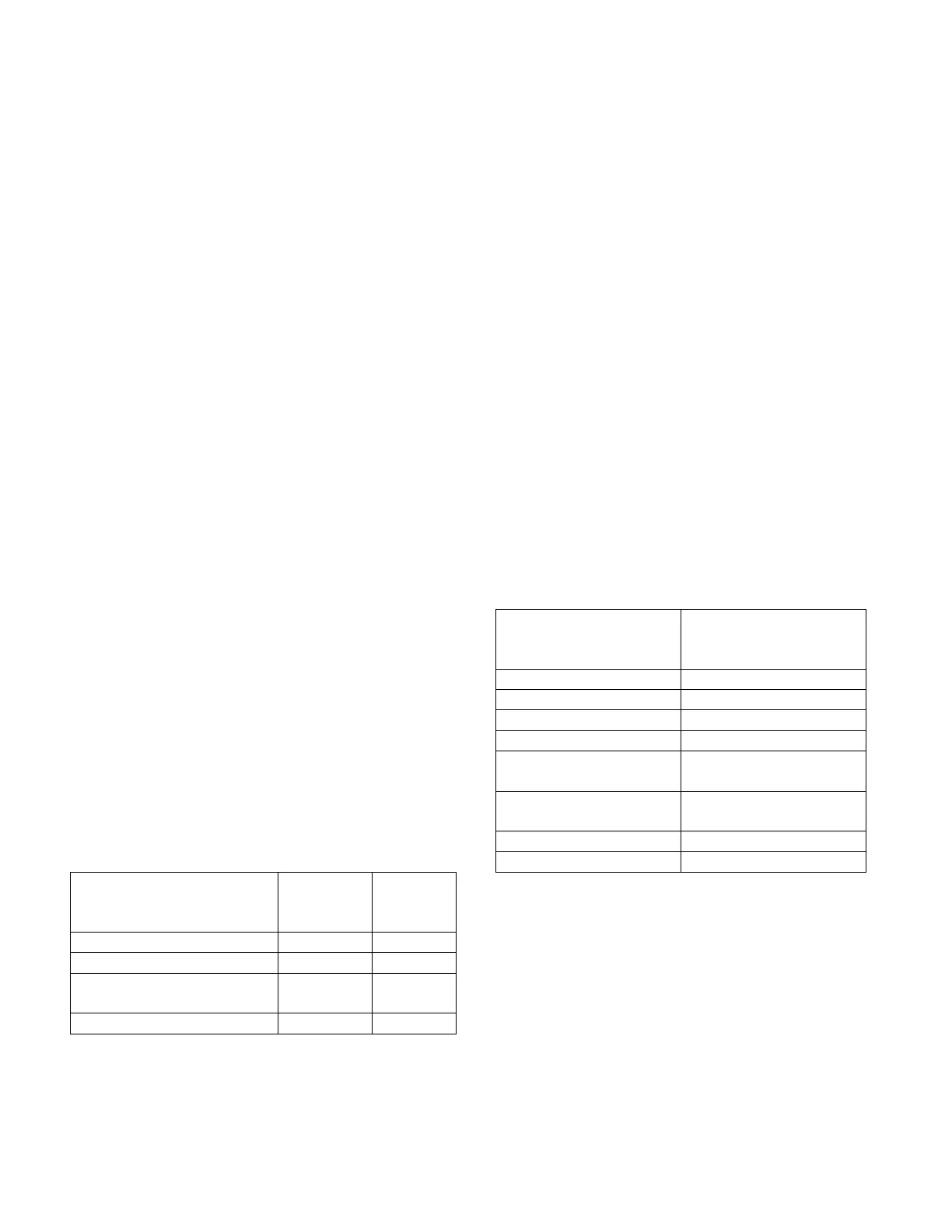Page 28 of 49
• Provide for adequate heat transfer.
• Provide protection from cavitation damage.
• Provide a corrosion/erosion-resistant
environment within the cooling system.
• Prevent formation of scale or sludge deposits
in the cooling system.
• Be compatible with engine hose and seal
materials.
• Provide adequate freeze and boil over
protection.
WARNING
A water and anti-freeze solution is required for
pump installations. Premixing this solution prior
to installing is required. This prevents possible
pure anti-freeze chemical reactions to block
heater elements which can burnout the element.
Please see the I&O section (see Page 5) for proper
cooling system capacities of each model.
3.4.3 Water
Water can produce a corrosive environment in the
cooling system, and the mineral content may permit
scale deposits to form on internal cooling surfaces.
Therefore, inhibitors must be added to control
corrosion, cavitation, and scale deposits.
Chlorides, sulfates, magnesium and calcium are
among the materials which make up dissolved solids
that may cause scale deposits, sludge deposits,
corrosion or a combination of these. Chlorides
and/or sulfates tend to accelerate corrosion, while
hardness (percentage of magnesium and calcium salts
broadly classified as carbonates) causes deposits of
scale. Water within the limits specified in Figure
#22 is satisfactory with an engine coolant when
properly inhibited. Use of deionized or red distilled
water is preferred.
Figure #22
3.4.4 Coolant Capacities
Ethylene Glycol or Propylene Glycol are acceptable:
IMPORTANT:
Do not use cooling system sealing additives or
antifreeze that contains sealing additives.
Do not mix ethylene glycol and propylene glycol
base coolants.
Do not use coolants that contain nitrites.
Use an ethylene glycol coolant (low silicate
formulation) that meets the standard of either the GM
6038-N formulation (GM1899-M performance) or
ASTM D6210 requirements.
A 50% coolant water solution is recommended. A
concentration over 70% is not recommended because
of poor heat transfer capability, adverse freeze
protection and possible silicate dropout.
Concentrations below 30% offer little freeze, boil
over or corrosion protection.
IMPORTANT
Never use automotive-type coolants (such as those
meeting only ASTM D3306 or ASTM D4656).
These coolants do not contain the correct additives
to protect heavy-duty diesel engines. They often
contain a high concentration of silicates and may
damage the engine or cooling system.
Figure #23
3.4.5 Coolant Inhibitor
The importance of a properly inhibited coolant
cannot be over-emphasized. A coolant which has
insufficient or no inhibitors at all, invites the
formation of rust, scale, sludge and mineral deposits.
These deposits can greatly reduce the cooling
systems efficiency and protection capabilities.
Recommended supplemental coolant inhibitors are a
combination of chemical compounds which provide
corrosion protection, cavitation suppression, pH

